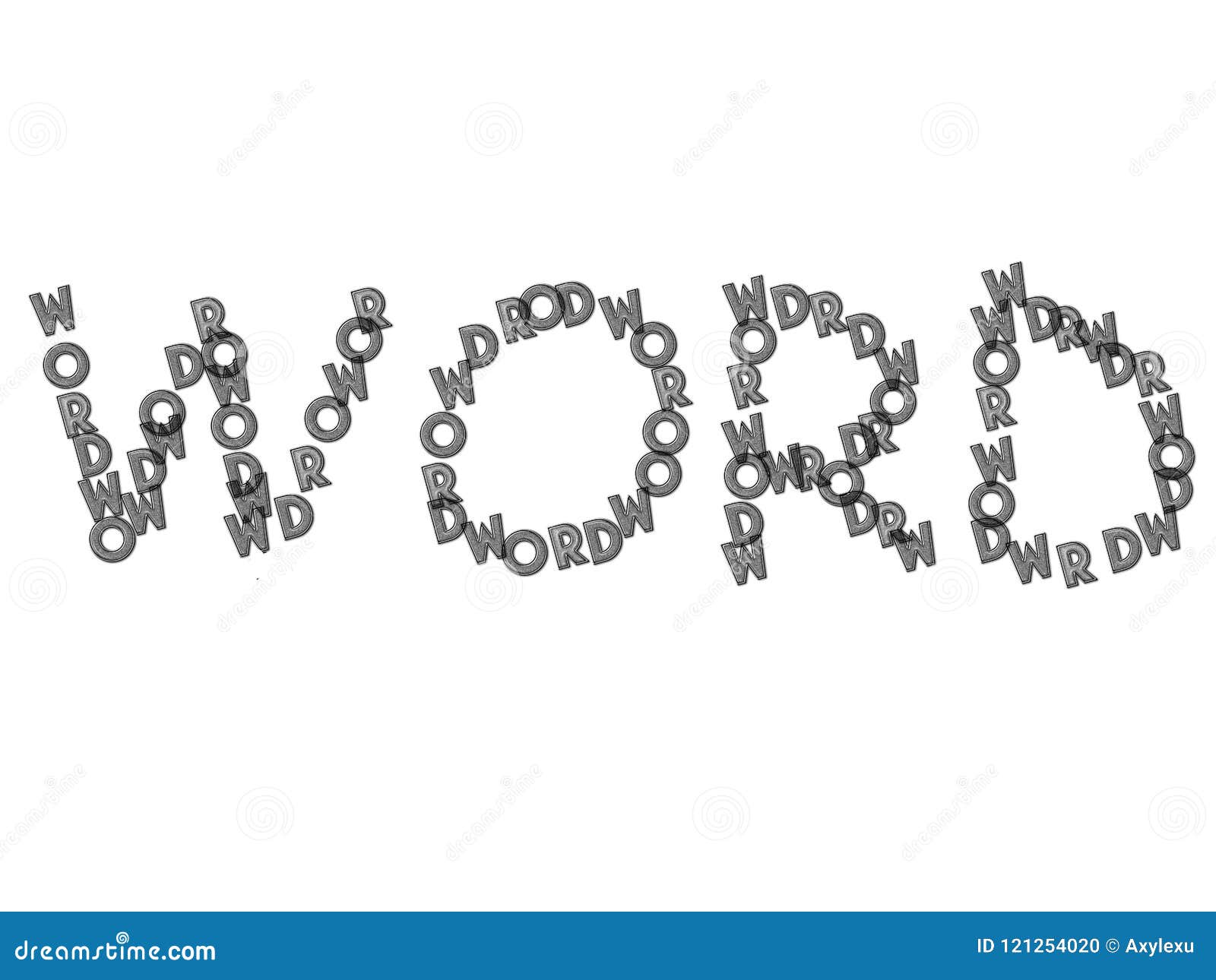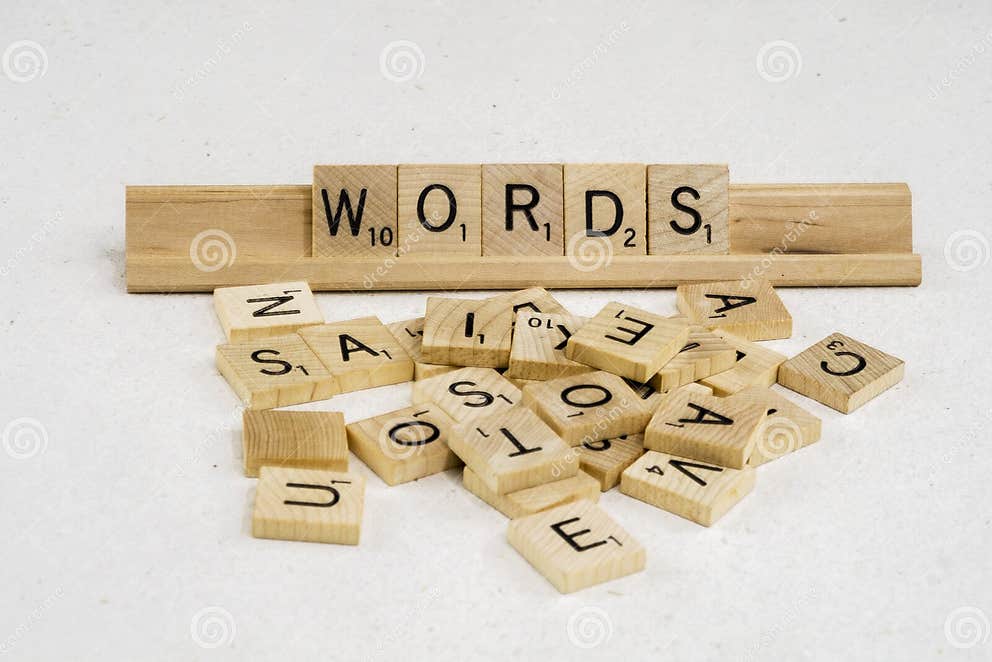Unveiling The Magic Of Words Made From Letters
Have you ever wondered how words are like puzzles made from letters? Yeah, that’s right! Words are more than just random combinations of letters—they're like little treasures waiting to be discovered. Whether you're a word nerd or just someone who loves language, understanding how words are crafted can blow your mind. So, buckle up because we're diving deep into the fascinating world of words made from letters!
Think about it. Every word you read, speak, or write is like a recipe. You take some letters, mix them up, and voilà—you’ve got a word. But it’s not just about putting letters together; it’s about creating meaning. Words made from letters have the power to express emotions, share ideas, and even change the world. Sounds pretty epic, right?
In this article, we’ll explore the art of word-building, uncover some cool tricks, and share tips to help you master the game of creating words. From simple combinations to complex arrangements, we’ve got you covered. So, grab a cup of coffee, settle in, and let’s unlock the secrets of words made from letters together!
- Why July 16 Zodiac Is More Than Just A Star Sign
- Boob Pedia The Ultimate Guide To Understanding And Appreciating The Female Form
What Are Words Made From Letters?
At its core, a word is essentially a group of letters arranged in a specific order to convey meaning. But here’s the thing: not every combination of letters makes sense. For example, "qwrty" isn’t a word, but "query" is. See the difference? The magic lies in the arrangement and the rules that govern how letters interact. Words made from letters follow patterns, and once you understand these patterns, you can start creating your own masterpieces.
Let’s break it down: letters are the building blocks of language. Just like LEGO bricks, you can use them to build something small or something massive. Words made from letters range from short ones like "cat" to long ones like "supercalifragilisticexpialidocious." The possibilities are endless!
And here’s a fun fact: the English language has over a million words! Crazy, right? But don’t worry, you don’t need to know them all. Understanding how words are constructed can help you expand your vocabulary and improve your communication skills. So, let’s dive into the nitty-gritty of word-building!
- King Von Autopsy A Closer Look At The Life And Tragic End Of A Rising Star
- Scott Lane Actor Cause Of Death The Untold Story Behind A Life Cut Short
How Are Words Made from Letters Formed?
Creating words from letters is like solving a puzzle. You need to know the rules of the game, which include phonetics, spelling, and grammar. For instance, certain letters go well together, while others don’t. Take the letter "q"—it’s almost always followed by "u" in English. That’s just one of the many rules that guide how words are formed.
Another important aspect is prefixes and suffixes. These little additions can completely change the meaning of a word. For example, adding "un-" to "happy" gives you "unhappy," and adding "-ness" to "kind" gives you "kindness." It’s like adding ingredients to a dish to enhance its flavor.
But wait, there’s more! Some words are created by combining two or more words. These are called compound words. Think about "notebook," "toothpaste," or "basketball." Each part of the word contributes to its overall meaning. Isn’t language amazing?
Key Rules for Word Creation
Here are some basic rules to keep in mind when forming words:
- Letters must follow phonetic rules to sound correct.
- Spelling matters! A single misplaced letter can change the meaning entirely.
- Prefixes and suffixes can expand or modify the meaning of a word.
- Compound words combine two or more words to create a new one.
Why Are Words Made from Letters Important?
Words are the foundation of communication. They allow us to express our thoughts, emotions, and ideas. Without words, we’d be stuck in a world of silence. Words made from letters are especially important because they form the backbone of language. They help us connect with others, learn new things, and even entertain ourselves.
In today’s digital age, words are everywhere. From social media posts to emails, articles, and books, words shape our daily lives. Mastering the art of word-building can improve your writing, speaking, and even thinking skills. Plus, it’s a great way to impress your friends and colleagues!
The Power of Words in Everyday Life
Words have the power to inspire, motivate, and even heal. Think about famous speeches, poems, and songs that have touched millions of lives. Each of these masterpieces started with a few simple words made from letters. So, the next time you write something, remember that your words can make a difference.
Fun Ways to Play with Words Made from Letters
Who says learning about words has to be boring? There are tons of fun ways to play with words made from letters. Scrabble, Boggle, and Wordle are just a few examples of games that challenge your word-building skills. These games not only entertain but also help you expand your vocabulary.
Another fun activity is creating anagrams. Anagrams are words or phrases formed by rearranging the letters of another word or phrase. For example, "listen" becomes "silent," and "anagram" becomes "nag a ram." Cool, right? You can also try creating palindromes, which are words that read the same backward and forward, like "madam" or "racecar."
Word Games for All Ages
Word games are perfect for people of all ages. Kids can learn new words while having fun, and adults can sharpen their minds and improve their cognitive abilities. Plus, many of these games can be played online, making them accessible anytime, anywhere. So, why not challenge yourself or your friends to a word game today?
Common Mistakes When Creating Words Made from Letters
Even the best writers make mistakes when creating words from letters. Some common errors include misspelling, using the wrong homophone, or forgetting grammar rules. For example, confusing "there," "their," and "they’re" is a classic mistake. Another common issue is misplacing apostrophes, which can completely change the meaning of a word.
To avoid these mistakes, it’s important to proofread your work and use tools like spell-checkers. However, don’t rely solely on technology. Sometimes, human eyes can catch errors that machines miss. So, always double-check your work before hitting "send" or "publish."
Tips to Avoid Word-Building Mistakes
- Proofread your work carefully.
- Use spell-checkers and grammar tools as a backup.
- Learn common homophones and their differences.
- Practice writing regularly to improve your skills.
Advanced Techniques for Creating Words Made from Letters
Once you’ve mastered the basics, it’s time to level up your word-building skills. Advanced techniques include using root words, exploring etymology, and experimenting with neologisms. Root words are the foundation of many English words. For example, the root "astro" means "star," and it’s found in words like "astronomy" and "astrology."
Etymology, or the study of word origins, can also help you understand how words are formed. For instance, the word "telephone" comes from the Greek words "tele" (meaning "far") and "phone" (meaning "sound"). By learning the origins of words, you can better understand their meanings and usage.
Neologisms, or newly coined words, are another exciting area to explore. These are words that are invented to describe new concepts or phenomena. For example, "selfie" and "hashtag" are relatively new additions to the English language. Who knows? Maybe you’ll come up with the next big word!
Exploring the World of Root Words
Root words are like the DNA of language. They provide the foundation for many words and can help you decipher unfamiliar terms. For example, knowing that "bio" means "life" can help you understand words like "biology" and "biodegradable." By mastering root words, you can improve your vocabulary and become a more confident communicator.
Practical Applications of Words Made from Letters
Understanding how words are made from letters has practical applications in many fields. In education, it helps students improve their reading and writing skills. In business, it enhances communication and branding. In science, it aids in the creation of technical terms and jargon. The possibilities are endless!
For example, in marketing, choosing the right words can make all the difference. A well-crafted slogan or tagline can capture the attention of potential customers and leave a lasting impression. Similarly, in journalism, using precise language can ensure that your message is clear and accurate.
Words in Action: Real-Life Examples
Take a look at some real-life examples of how words made from letters are used:
- Brands like "Nike" and "Apple" use simple, memorable names to create strong brand identities.
- Authors like J.K. Rowling invent new words to bring their fictional worlds to life.
- Scientists use technical terms to describe complex concepts in a precise way.
Conclusion: Embrace the Art of Word-Building
Words made from letters are more than just combinations of symbols—they’re the building blocks of language. By understanding how words are formed, you can unlock a world of possibilities. Whether you’re a student, a professional, or just someone who loves language, mastering the art of word-building can benefit you in countless ways.
So, what are you waiting for? Start exploring the world of words today! Share your thoughts in the comments below, and don’t forget to check out our other articles for more tips and tricks. Remember, the more you practice, the better you’ll get. Happy word-building!
Table of Contents
- What Are Words Made From Letters?
- How Are Words Made from Letters Formed?
- Why Are Words Made from Letters Important?
- Fun Ways to Play with Words Made from Letters
- Common Mistakes When Creating Words Made from Letters
- Advanced Techniques for Creating Words Made from Letters
- Practical Applications of Words Made from Letters
- Conclusion: Embrace the Art of Word-Building



Detail Author:
- Name : Ms. Jaqueline Hackett
- Username : douglas70
- Email : jeanie27@hotmail.com
- Birthdate : 1975-03-24
- Address : 796 Marianne Junctions Apt. 697 North Amiechester, MA 98480-8190
- Phone : (458) 758-6041
- Company : Shields, Bogisich and Wuckert
- Job : Shear Machine Set-Up Operator
- Bio : Impedit quia vero quae sunt dignissimos dolor quaerat. Distinctio aliquid nesciunt illo aut aspernatur laboriosam tempora. Molestiae earum aliquid repudiandae ab quidem.
Socials
facebook:
- url : https://facebook.com/roman_cummerata
- username : roman_cummerata
- bio : Tempore enim laudantium quis tempora corporis dolores. Ea tempora vel totam.
- followers : 253
- following : 2475
linkedin:
- url : https://linkedin.com/in/romancummerata
- username : romancummerata
- bio : Vero ipsam voluptatem perspiciatis est.
- followers : 3692
- following : 2857
twitter:
- url : https://twitter.com/cummeratar
- username : cummeratar
- bio : Cumque quisquam ut non. Ut pariatur et fuga blanditiis voluptatem. Odit dolorum et impedit in pariatur ea recusandae.
- followers : 5991
- following : 231
tiktok:
- url : https://tiktok.com/@roman_cummerata
- username : roman_cummerata
- bio : Commodi laborum sint quae magni illum. Impedit in voluptas aut et maiores.
- followers : 5818
- following : 1944
instagram:
- url : https://instagram.com/romancummerata
- username : romancummerata
- bio : Rerum ratione rerum odit quod sint. Et magni illo hic cum illum et.
- followers : 2409
- following : 1584